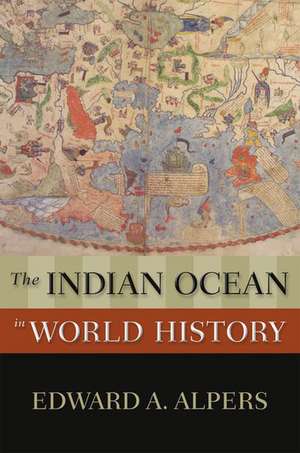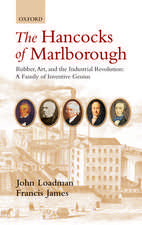The Indian Ocean in World History: New Oxford World History
Autor Edward A. Alpersen Limba Engleză Paperback – 23 ian 2014
| Toate formatele și edițiile | Preț | Express |
|---|---|---|
| Paperback (1) | 183.70 lei 10-16 zile | |
| Oxford University Press – 23 ian 2014 | 183.70 lei 10-16 zile | |
| Hardback (1) | 595.58 lei 31-37 zile | |
| Oxford University Press – 16 ian 2014 | 595.58 lei 31-37 zile |
Din seria New Oxford World History
-
 Preț: 255.85 lei
Preț: 255.85 lei - 7%
 Preț: 177.77 lei
Preț: 177.77 lei - 14%
 Preț: 184.14 lei
Preț: 184.14 lei - 14%
 Preț: 155.91 lei
Preț: 155.91 lei -
 Preț: 161.79 lei
Preț: 161.79 lei -
 Preț: 183.28 lei
Preț: 183.28 lei - 7%
 Preț: 171.39 lei
Preț: 171.39 lei - 7%
 Preț: 171.39 lei
Preț: 171.39 lei - 14%
 Preț: 171.39 lei
Preț: 171.39 lei - 7%
 Preț: 171.39 lei
Preț: 171.39 lei - 7%
 Preț: 170.88 lei
Preț: 170.88 lei - 6%
 Preț: 174.51 lei
Preț: 174.51 lei - 7%
 Preț: 184.04 lei
Preț: 184.04 lei - 7%
 Preț: 171.39 lei
Preț: 171.39 lei - 14%
 Preț: 184.59 lei
Preț: 184.59 lei - 26%
 Preț: 698.68 lei
Preț: 698.68 lei - 7%
 Preț: 171.39 lei
Preț: 171.39 lei - 8%
 Preț: 196.89 lei
Preț: 196.89 lei - 8%
 Preț: 183.24 lei
Preț: 183.24 lei - 8%
 Preț: 183.24 lei
Preț: 183.24 lei - 23%
 Preț: 184.31 lei
Preț: 184.31 lei - 7%
 Preț: 164.59 lei
Preț: 164.59 lei - 23%
 Preț: 177.84 lei
Preț: 177.84 lei - 23%
 Preț: 164.13 lei
Preț: 164.13 lei - 15%
 Preț: 89.89 lei
Preț: 89.89 lei - 18%
 Preț: 152.73 lei
Preț: 152.73 lei
Preț: 183.70 lei
Preț vechi: 223.24 lei
-18% Nou
Puncte Express: 276
Preț estimativ în valută:
35.16€ • 38.21$ • 29.56£
35.16€ • 38.21$ • 29.56£
Carte disponibilă
Livrare economică 20-26 martie
Preluare comenzi: 021 569.72.76
Specificații
ISBN-13: 9780195337877
ISBN-10: 0195337875
Pagini: 192
Ilustrații: 20 illustrations, 7 maps
Dimensiuni: 157 x 231 x 13 mm
Greutate: 0.27 kg
Editura: Oxford University Press
Colecția OUP USA
Seria New Oxford World History
Locul publicării:New York, United States
ISBN-10: 0195337875
Pagini: 192
Ilustrații: 20 illustrations, 7 maps
Dimensiuni: 157 x 231 x 13 mm
Greutate: 0.27 kg
Editura: Oxford University Press
Colecția OUP USA
Seria New Oxford World History
Locul publicării:New York, United States
Recenzii
This is a valuable initiation for students to Indian Ocean studies. And yet, for as much as the case is made, the books reads densely.
Notă biografică
Edward A. Alpers is Professor of History, UCLA. He is the author, The East African Slave Trade, Ivory and Slaves in East Central Africa, The African Diaspora: A Global Perspective; co-editor, Africa and the West. A Documentary History from the Slave Trade to Independence.










